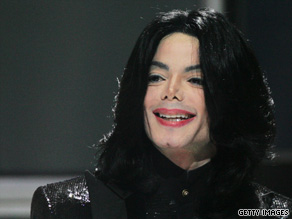
Michael Jackson’s impact on pop culture is indelible. But perhaps his biggest legacy will be how he changed the music industry.
“As a performer he changed history … his singing, his songwriting, his choreography, his dancing, his business acumen,” said Howard Bragman, a public relations expert who worked with Jackson to launch the singer’s shoe line with L.A. Gear. “He rewrote the history of the entertainment industry in his time,” Bragman said. Jackson crossed color lines and broke down barriers between musical genres. He followed in the footsteps of Elvis and the Beatles to create a transnational fan base that prefigured the era of globalization. And Jackson became a canny power broker who helped lead artists from stage performers into major boardroom players. “That gets lost in the last five and 10 years, with all the litigation battles — what he did the first 30 years to set the landscape for these other artists,” said James Walker, an entertainment attorney. “Michael transcended race before Michael Jordan, before Oprah, before Tiger Woods, before Barack Obama. “You can’t underestimate what his did for black artists — and artists as a whole — as a business man,” Walker added.
Don’t Miss
In Depth: Michael Jackson
Explainer: Cardiac arrest vs. heart attack
Videos: A look back at his life, performances
Videos: Reaction to his death and news of the day
His 1982 album “Thriller” has sold more than 50 million records worldwide — a record that, considering the decline of record sales in the wake of new media, is likely to stand for some years to come. “Records just don’t sell that much anymore. The industry has changed. … Now it’s in shambles because of technology,” said Gideon Yago, head of the IFC Media Project and a former correspondent for MTV News. Videos that accompanied the album became landmarks that set the industry standard, as MTV and cable television began to proliferate, creating ready outlets for a growing marketing tool. At the time, Jackson’s label had to fight to get onto MTV, which then featured only rock artists. “Walter Yetnikoff (former president of CBS records) drew a line in the sand and said, ‘We believe in this guy and you’re going to play his videos or we’re going to pull all our videos,'” Walker said. “What he did was so cutting-edge regarding videos; he defined the video age as we know it,” said Tommy Mottola, who succeeded Yetnikoff as head of CBS. Though his personal finances were in disarray at the end of his life, Jackson made some canny business decisions at the height of his power — most notably buying half the Beatles music catalog in 1985 for $47.5 million. “When you look at his royalties and his copyrights, he’s probably got a half a billion to a billion (dollar) catalogue,” Walker added. The current value of his estate is unclear. His debts stood at about $500 million, according to a Wall Street Journal story earlier this month. As the music industry model moved more toward live events in the face of dwindling album sales, two billionaire businessmen stepped in to bank of Jackson’s comeback with a series of concerts scheduled in London. Tom Barrack, head of hedge fund Colony Capital, teamed with Philip Anschutz, owner of AEG Live, to plan a third-act comeback for Jackson, with a sold-out 50-date stand at AEG Live’s O2 arena scheduled to begin next month. Future business plans included a world tour, a Broadway musical and even a “Thriller” casino. “You are talking about a guy who could make $500 million a year if he puts his mind to it,” Barrack told The Los Angeles Times in an article last month. “There are very few individual artists who are multibillion-dollar businesses. And he is one.” Billboard magazine estimates $85 million in ticket sales from the sold-out concert series. Additional packages, merchandise and secondary market sales could have raised the total to $115 million. AEG Live declined to comment.
“There will be a process put in place for ticketing (refunds). I don’t know what it is at the moment,” said Lucy Ellison, spokeswoman for O2 stadium. “We’ll leave it for his family to say what they want to say before we discuss ticketing information.” Jackson was expected to earn $50 million from the London shows.